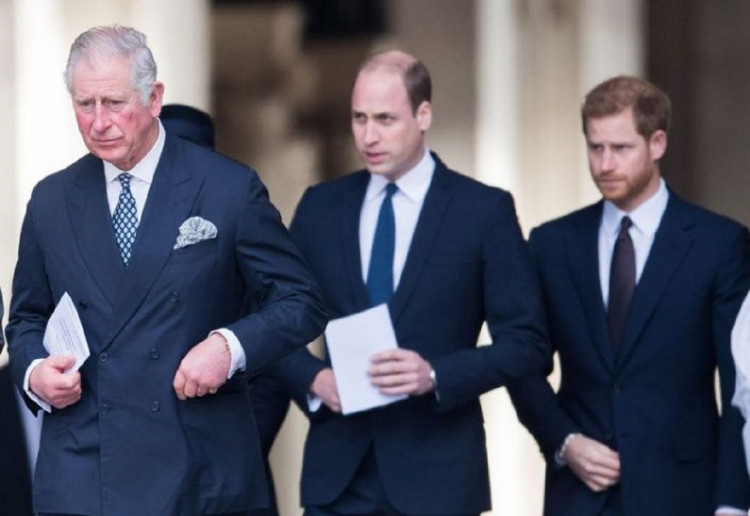King Charles III's health diagnosis has thrust the British monarchy into the spotlight, with discussions about potential abdication and the future leadership of the royal family taking center stage.
A significant portion of the American populace, as revealed by a Newsweek-commissioned Redfield & Wilton Strategies poll, appears amenable to the idea of Charles stepping down in favor of his son, Prince William, should his health decline. This sentiment reflects a broader conversation about the monarchy's adaptability and resilience in the face of personal and institutional challenges.
The King's diagnosis, discreetly revealed by Prime Minister Rishi Sunak, has been met with a stoic response from the palace, emphasizing the early detection and the King's subsequent return to his royal duties. Despite the lack of detailed public information, the monarch's engagement with Sunak at Buckingham Palace post-diagnosis signals a commitment to continuity and service, characteristic of his reign thus far.
Amidst this backdrop, the reactions within the royal family, particularly from Prince Harry and Prince William, provide a nuanced view of the monarchy's internal dynamics and the potential shifts in its public persona.
Royal expert Tom Quinn, in conversation with the Daily Express, suggested that Prince Harry's recent activities, including his visit to Canada with Meghan Markle and his involvement with the Invictus Games, might indicate a complex interplay of personal concern and a sense of duty amidst familial estrangement.
Quinn posits, "Like most people, [Harry] will have assumed that his father would go on as monarch probably into his 90s just as [Queen] Elizabeth II did." The implication here is that the Duke of Sussex, despite the rifts, harbors deep-seated familial bonds and concerns, particularly in light of his father's health. This sentiment is echoed in Harry's reflective statements about the impact of illness on family unity, witnessed through his experiences with the Invictus Games community.
On the other hand, Prince William's recent endeavors and public statements hint at a monarch-in-waiting who is keen on sculpting a modern and responsive royal ethos. His ventures into social housing and explicit commentary on global conflicts denote a willingness to engage with contemporary issues directly and empathetically.
"He's showing that - much like his late mother Princess Diana - he's unafraid to speak on subjects that may be considered to be politically sensitive," an insider revealed to New Idea Magazine, suggesting a paradigm shift from the traditionally reserved royal stance on contentious issues.
The juxtaposition of Prince William's assertive public presence with King Charles III's health concerns paints a picture of a royal family at a crossroads, grappling with the implications of personal health on public duty and the contours of future leadership. The American public's openness to the idea of abdication, as demonstrated by the Newsweek poll, further complicates this narrative, suggesting a transatlantic intrigue in the monarchy's adaptability to unforeseen challenges.
As discussions about King Charles III's potential abdication and Prince William's vision for the monarchy unfold, the royal family finds itself navigating a delicate balance between tradition and evolution, personal health and public duty, all under the watchful eyes of a global audience. This ongoing saga, rich with historical significance and contemporary relevance, continues to shape the narrative of one of the world's most enduring institutions.





